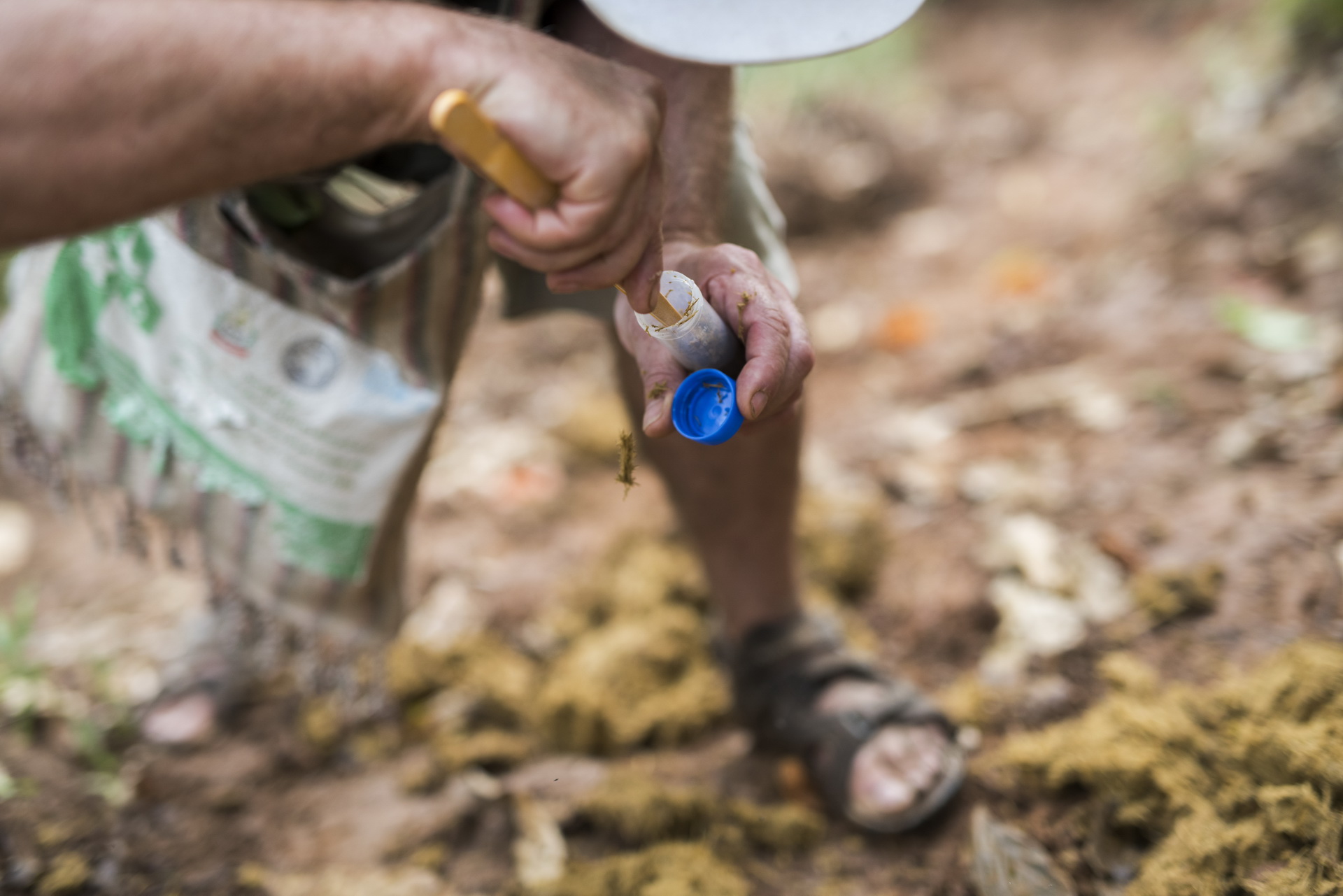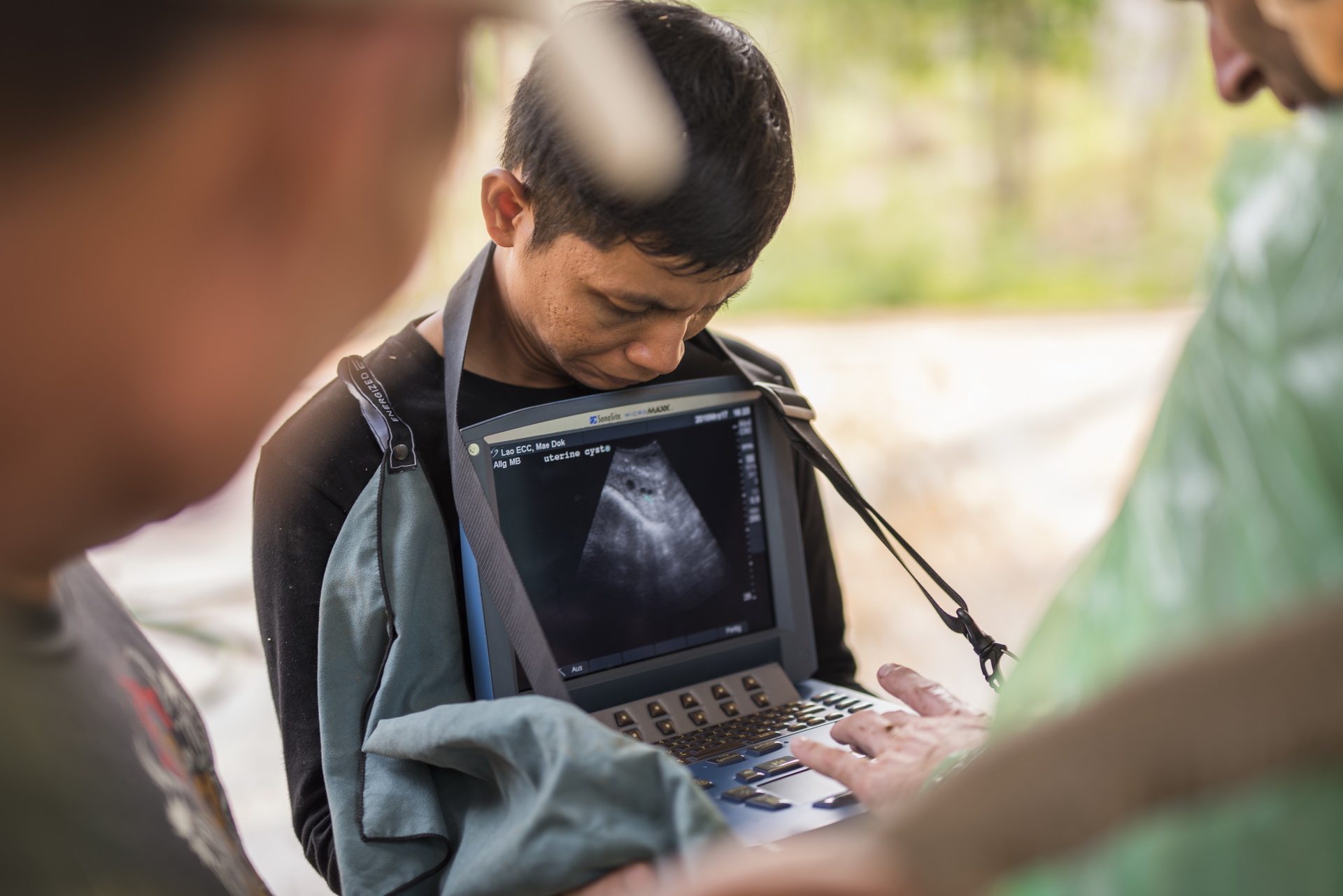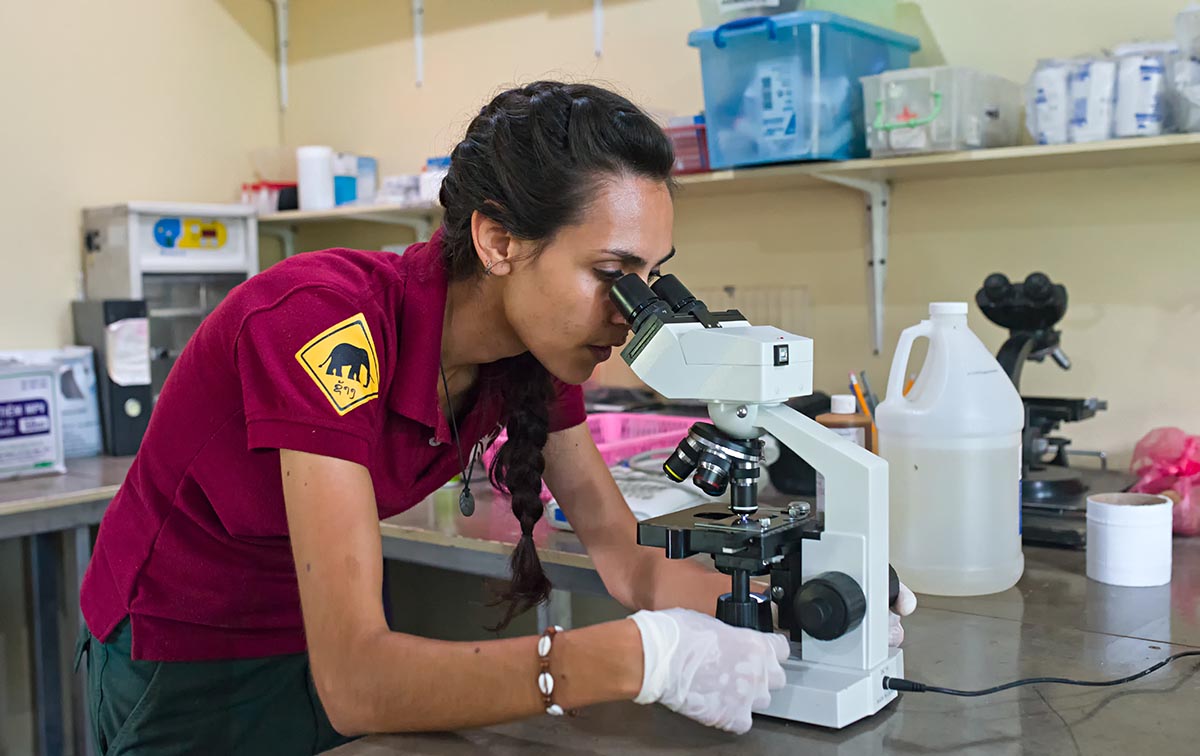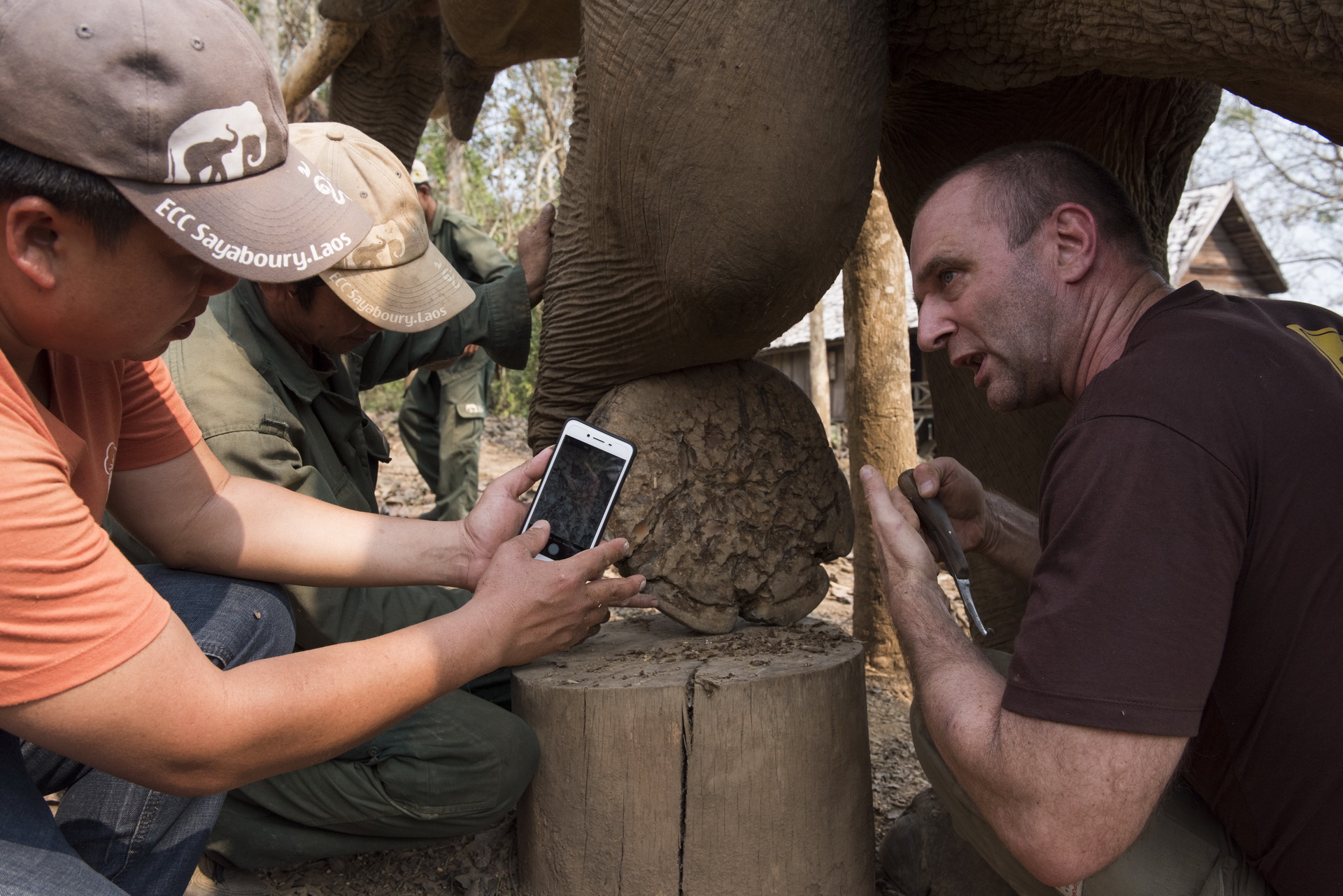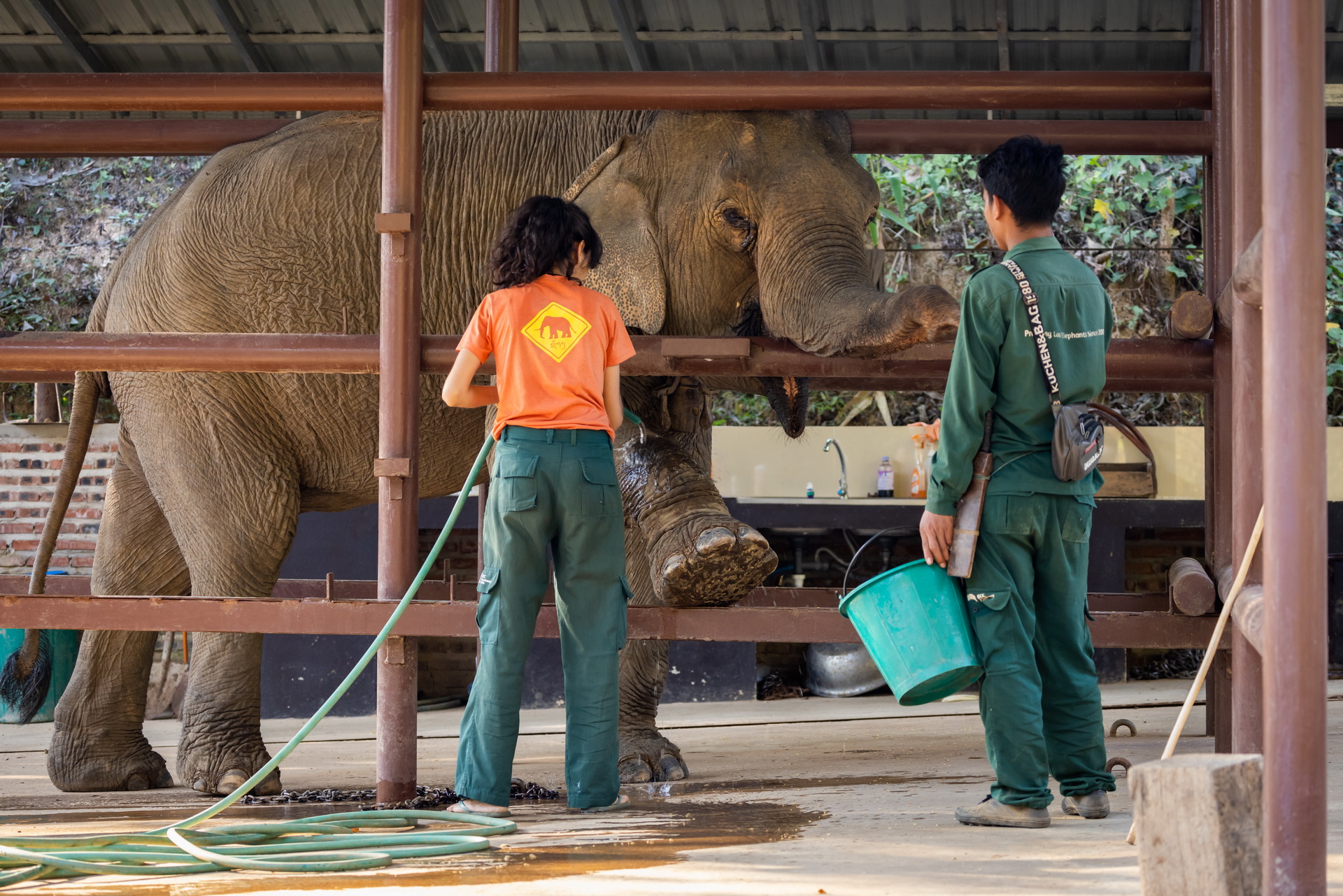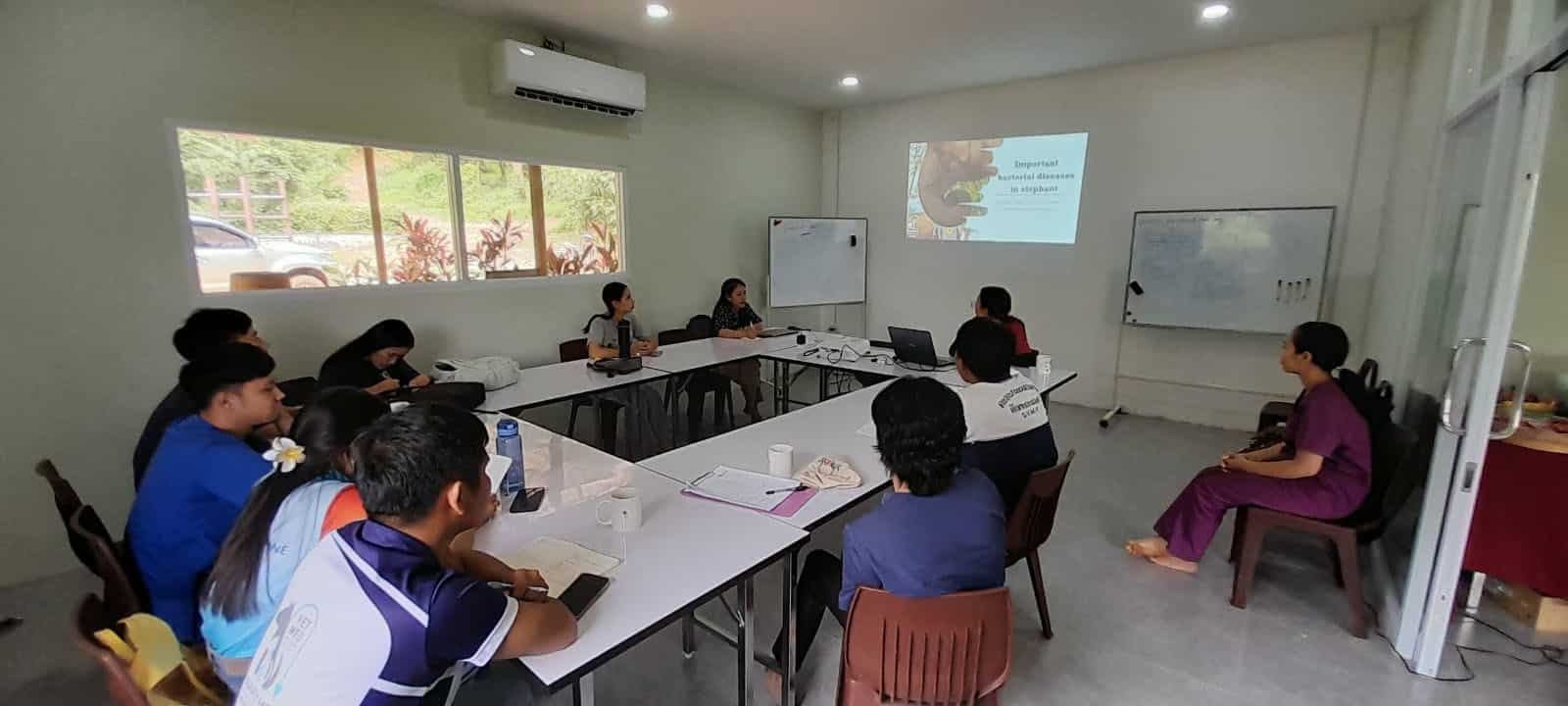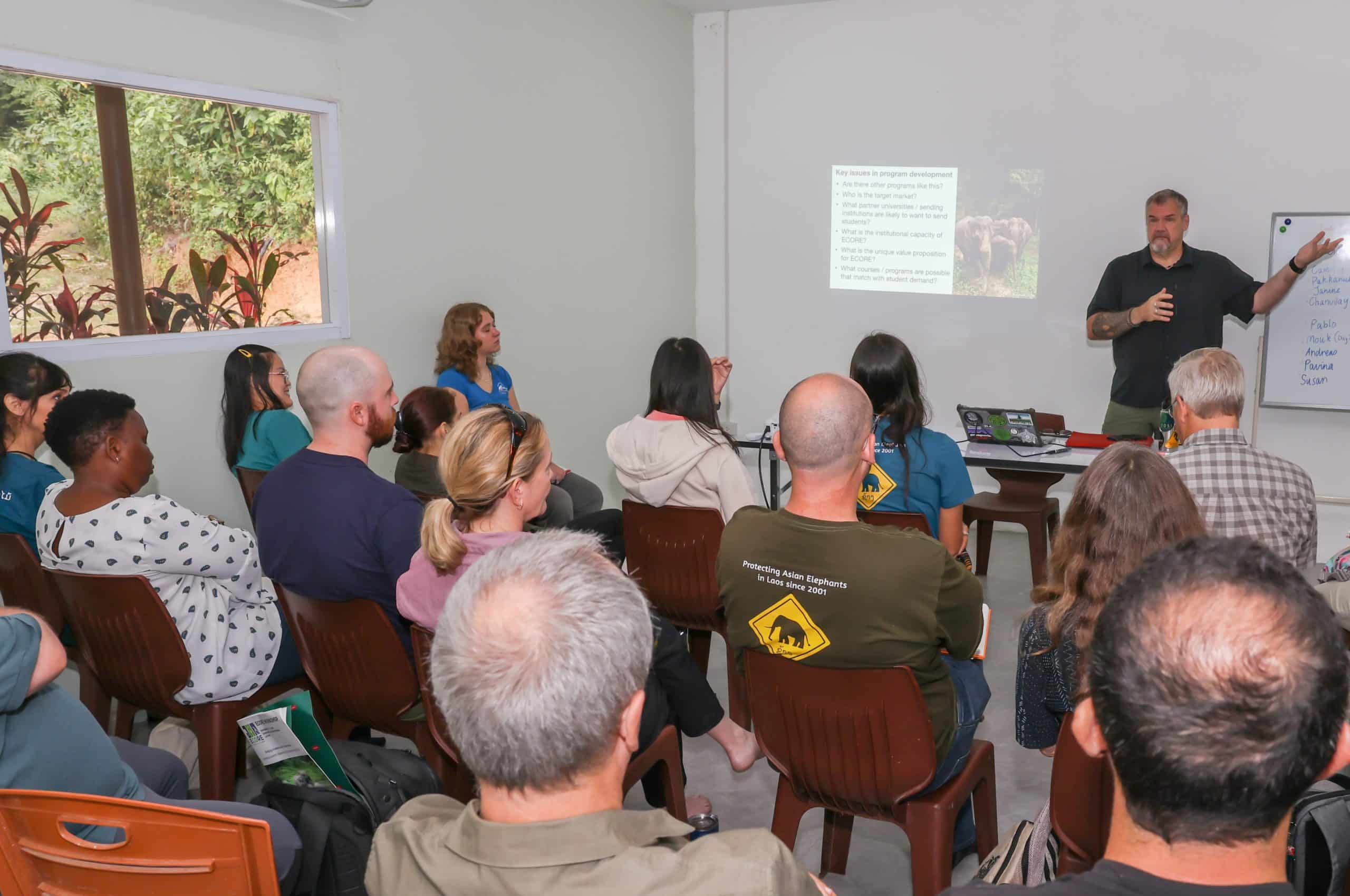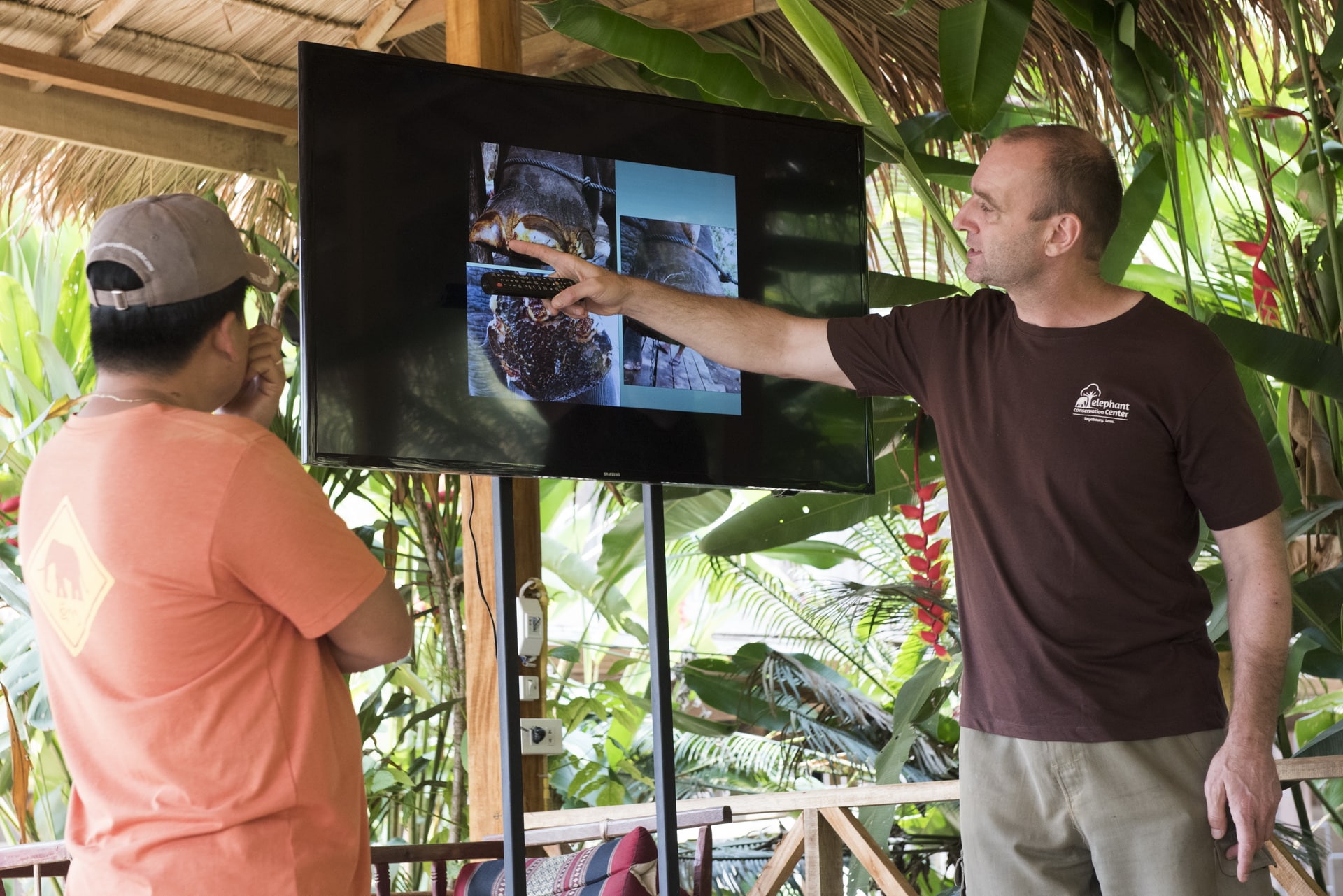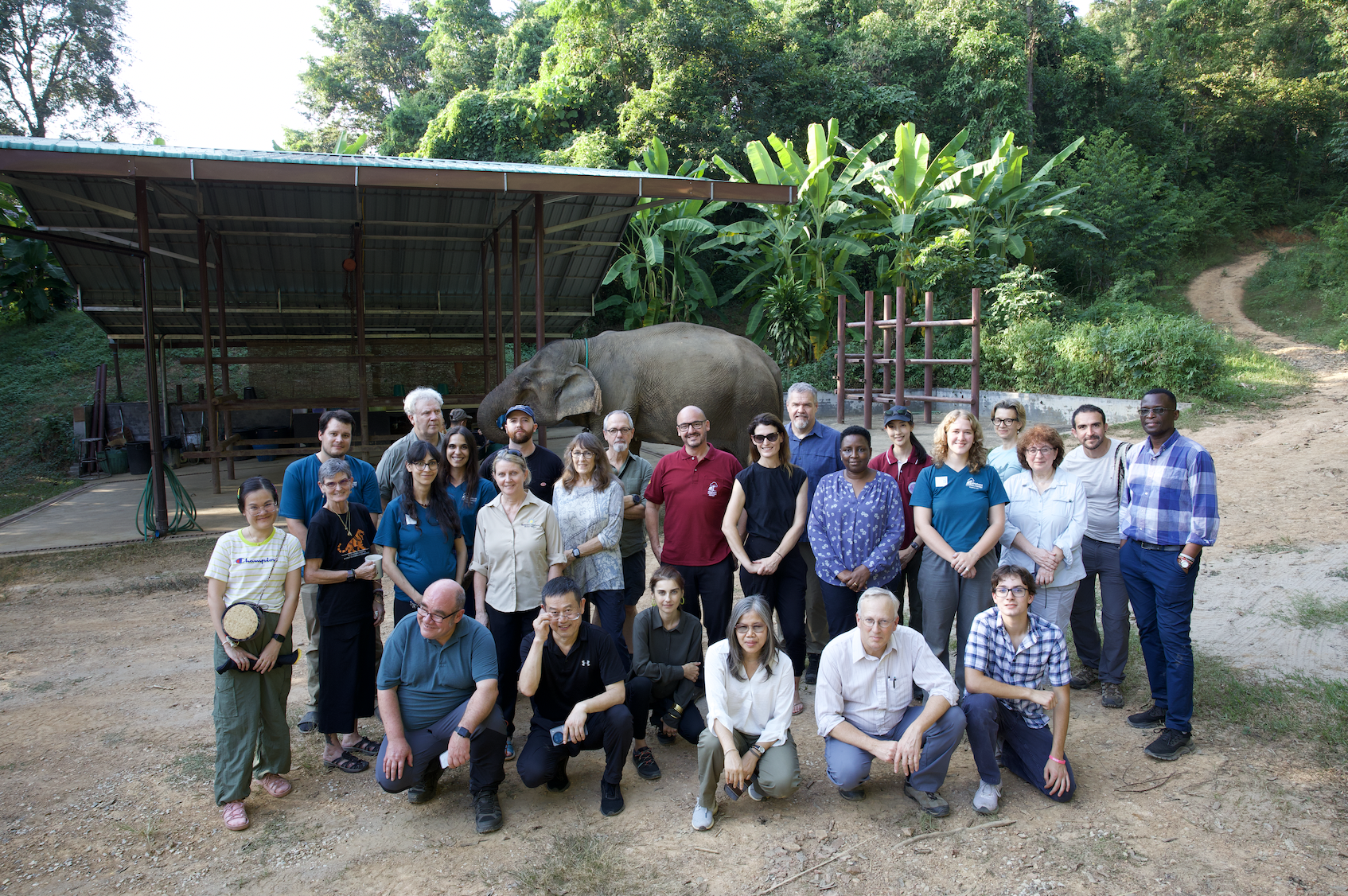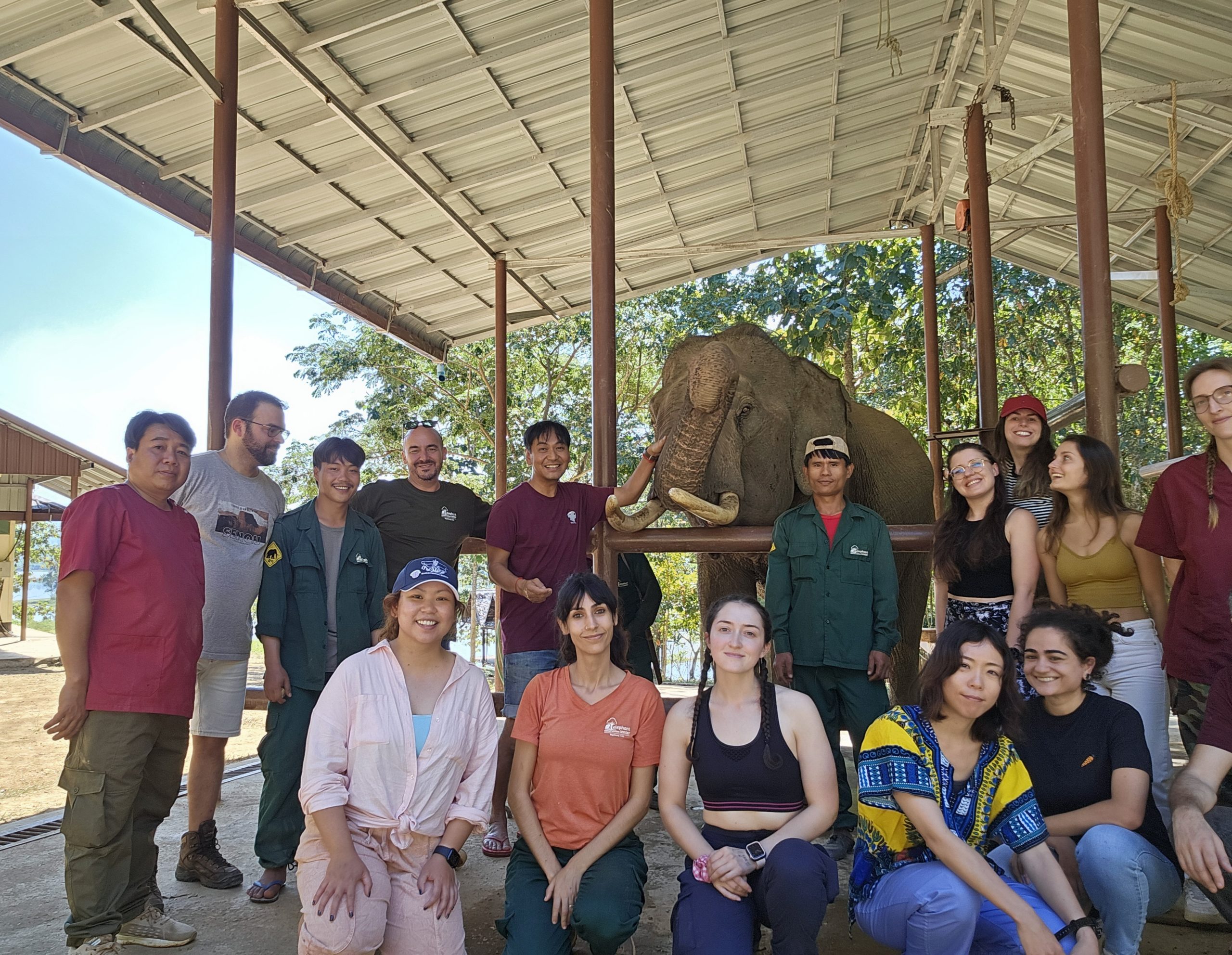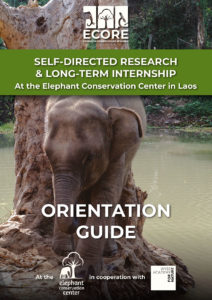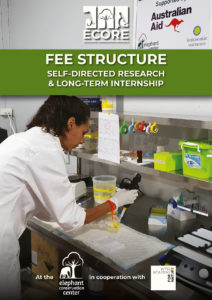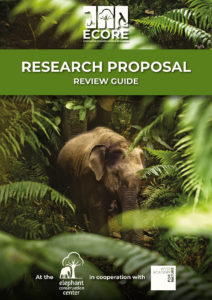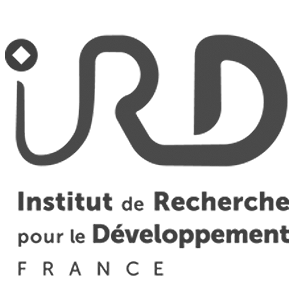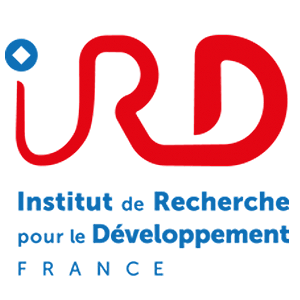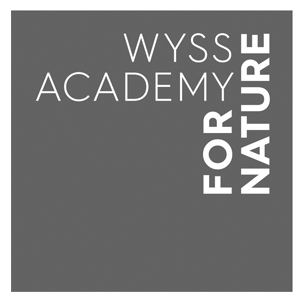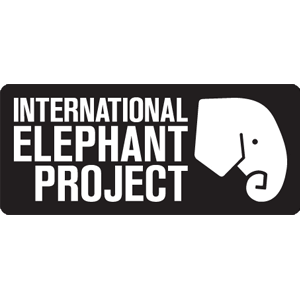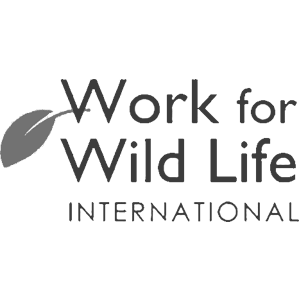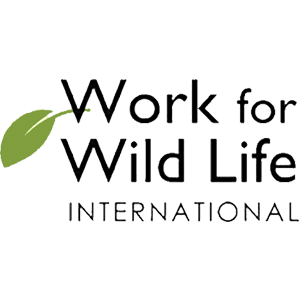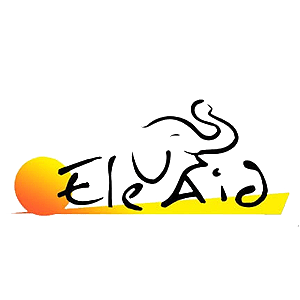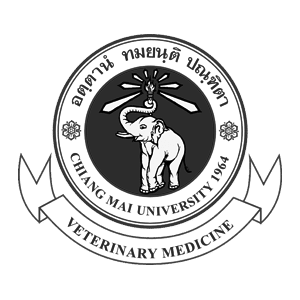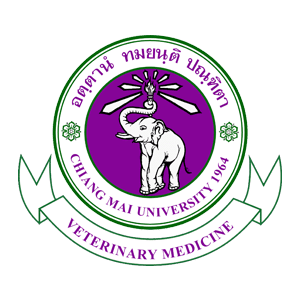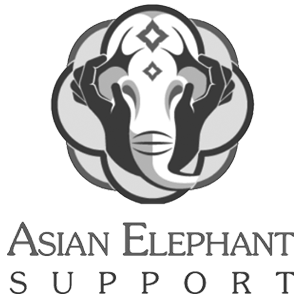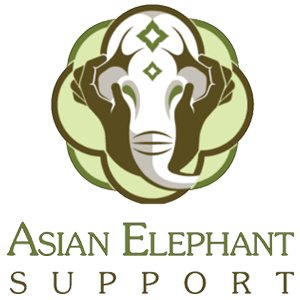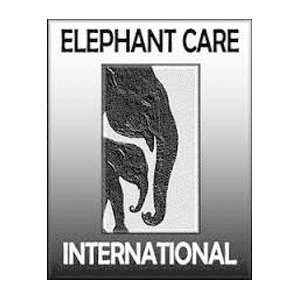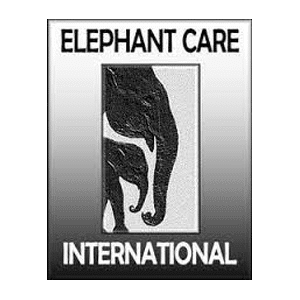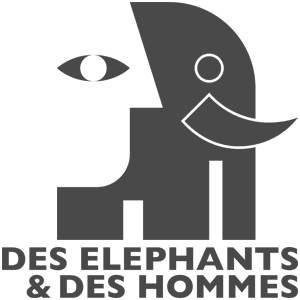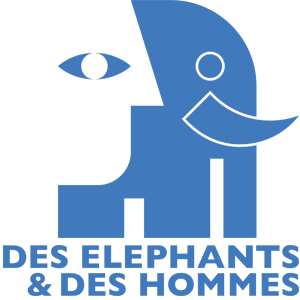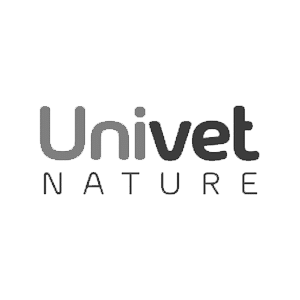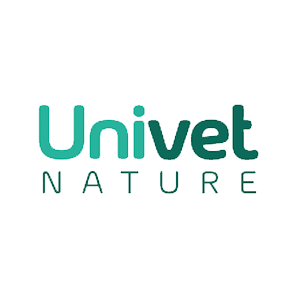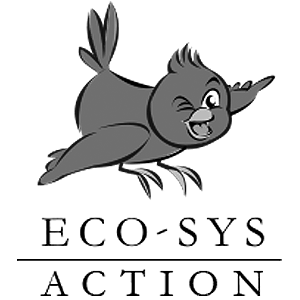Whether you are undertaking independent research or joining ECC as a long-term intern, you will gain rare, field-based access to Asian elephants alongside expert supervision and tailored logistical support. Based at the Elephant Conservation Center in Laos—the only facility in Asia to receive the Asian Captive Elephant Standards’ Conservation Gold Award—these placements embed individuals within a working conservation setting that combines traditional mahout knowledge with applied scientific research. Participants contribute meaningfully to ongoing studies in elephant welfare, behaviour, and tropical ecology, while benefiting from access to lab facilities, experienced mentors, and a multidisciplinary conservation team.
CONDUCT RESEARCH OR INTERNSHIP AT ECC
Advance your career in conservation at the Elephant Conservation Center in Laos.

Ideal for postgraduate students, researchers, or professionals pursuing independent studies related to elephant behaviour, welfare, conservation, or tropical ecology. This placement allows you to design and implement your own research project with access to ECC’s elephant hospital, laboratory facilities, and dedicated research support.
You will work alongside our team of veterinarians and biologists while benefiting from guidance, supervision, and logistical assistance tailored to your project’s scope and needs.

Suited for students and recent graduates in conservation, veterinary science, biology, environmental studies, or related disciplines, this internship provides immersive, hands-on experience in the field. Interns become part of ECC’s day-to-day operations, assisting with behaviour monitoring, data collection, health checks, and habitat enrichment.
Alongside our mahouts, vets, and biologists, interns develop practical skills in elephant welfare and conservation research. The internship is also an opportunity to gain insight into Lao culture, contribute to real-world conservation outcomes, and build networks with professionals from academia, NGOs, and government agencies.
SCIENTIFIC COMMITTEE
The ECORE Scientific Committee brings together leading experts in conservation biology, veterinary science, elephant management, and ecological research. This committee plays a key role in ensuring the scientific integrity of our research, advising on programme development, and supporting the long-term goals of the Elephant Conservation Center. Each member brings specialised knowledge and experience, contributing to the rigour and credibility of our work.
Noha Abou-Madi, DVM, MSc, Dipl. ACZM.
Noha Abou-Madi is a Zoological Veterinarian and Associate Clinical Professor of Zoological Medicine at Cornell University’s College of Veterinary Medicine. She teaches both theoretical and practical courses in zoological medicine, provides veterinary care at the Belize Zoo, consults with zoos and veterinarians across the U.S., and collaborates on research projects globally. Her clinical research focuses on solving specific diagnostic or treatment challenges. She also serves on the North American Elephant Endotheliotropic Herpesvirus Advisory Board.
Anabel Lopez Perez, Ph.D.
Anabel Lopez Perez is a wildlife biologist with over 11 years of experience in elephant welfare, behaviour, and management at the Elephant Conservation Center in Laos, where she now serves as Head of Research. She completed her PhD on male elephant social networks to inform improved management strategies. Anabel leads welfare monitoring, supports social group integration, and co-founded a Wildlife Emergency Response Team with the Lao Conservation Trust for Wildlife. A member of the IUCN SSC Asian Elephant Specialist Group, she contributes to both elephant conservation and broader biodiversity efforts in Laos.
Janine L. Brown, Ph.D.
Janine Brown is a research physiologist and leads the endocrinology laboratory at the Smithsonian Conservation Biology Institute. She is dedicated to advancing conservation and animal management through research on behaviour, reproductive endocrinology, and stress. A world authority on elephant reproductive biology, Brown’s lab supports ex situ conservation efforts for Asian and African elephants in the U.S. and range countries including Thailand, Laos, Myanmar, and Sri Lanka.
Sabrina Locatelli, Ph.D.
Dr. Sabrina Locatelli holds master’s degrees in immunology and primate conservation, and a PhD in public health and epidemiology from the University of Basel. Her research explores disease emergence at the human–animal interface in forested and rural areas of Central Africa and Southeast Asia. Now based in Laos, she serves as the Laos Representative for the French National Research Institute for Sustainable Development (IRD) and co-directs the Centre International de Recherche Environnementale de Nakaï (CIREN). She also co-leads the LMI PRESTO initiative focused on preventing zoonotic disease transmission in high-biodiversity regions.
Susan Mikota, Ph.D.
Dr. Susan Mikota is Co-founder and Director of Veterinary Programs and Research at Elephant Care International, a non-profit focused on elephant health, welfare, and conservation. She is co-author of the textbook Biology, Medicine, and Surgery of Elephants and has worked across Asia, including Nepal, Myanmar, and Indonesia. A Guggenheim Fellow and board-certified in Animal Welfare, Dr. Mikota is a Diplomate of the American College of Animal Welfare, adjunct professor at Michigan State University, and a member of the IUCN Asian Elephant Specialist Group. She is based in Tennessee, USA.
Sebastien Duffillot, MBA.
Sébastien Duffillot is a French conservationist and co-founder of ElefantAsia and the Elephant Conservation Center (ECC) in Laos. His work focuses on improving welfare for captive and wild elephants through veterinary care, habitat protection, and sustainable community engagement. He is President of the NGO Elephants & People (Des Eléphants & Des Hommes) and a member of the IUCN SSC Asian Elephant Specialist Group.
WHAT WE OFFER
-
Access to ECC’s elephant hospital, endocrinology lab, and DNA lab
-
Support from ECC veterinarians, biologists, and field staff
-
Research workspace and sample storage
-
Collaboration opportunities with the National University of Laos and other partners
-
Full-board accommodation in nature (dorm or upgraded lodges available)
-
Logistical support and guidance throughout your stay
-
Unique setting blending traditional mahout knowledge with modern science
HOW TO APPLY
Applicants must submit the following:
-
CV and cover letter (including your interests, expectations, and goals)
-
Research proposal (see our Research Proposal Guide)
-
List of expectations and required support (e.g. lab access, supervision, translation)
-
Two reference letters from academic or professional referees
Please note: All applications are reviewed individually. Support levels may vary based on project scope and ECC staff availability.
Want to Learn More?
Contact Us
For inquiries or further information, please contact our dedicated team at [email protected]. We welcome prospective students and researchers to visit and explore collaboration possibilities.


